It has never been easier to sell landscape photos. There are so many options and opportunities. But there is also lots of competition.
This means you must work harder and be much more organized and creative. This is true in the way you take your pictures and also the way you sell them. Read on for our top tips on how to begin selling landscape photos.
Our Top Tips on How to Sell Landscape Photos
This article is about how to make money from landscape photography, from selling prints to stock photos.
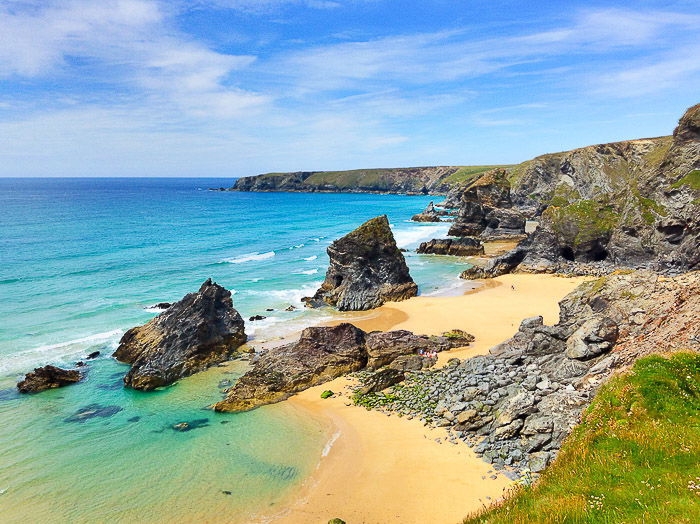
1. A Long-Term Business Plan Will Help You Focus Your Efforts
Photography is like any other business. You need to create a long-term plan to achieve your goals. This might include deciding where and how to sell photos.
For example, are you going to be selling stock shots? Or are you going to sell your great landscape picture as a print?
The more comprehensive your plan is, the more likely you will see it through and profit from your photos.

2. What Are Your Options for Selling Photos?
Once you have your plan, begin researching the various elements within it. For example, how to sell photos online or in exhibitions and galleries.
This part of the process is important as it will impact the type of photos that you might take. If you plan on selling your photos to magazines, you may need to produce photos showing an experience.
This might mean including a hiker walking in your landscape image. But you may need clean images that look good hung on a wall.
Generally, there are three common ways to make money with landscape photography:
- Sell them as stock shots through online websites such as Alamy or Getty. Or even directly to clients such as magazines and websites.
- Produce prints from your landscape images to sell to consumers.
- Get commissioned by a client for an assignment.
Each of these will need a different approach and slightly different types of images.

3. Gear Can Impact the Value of Your Photos
It’s wise not to overspend on photography equipment when you are starting. But you still need to buy the right equipment.
There is no point in purchasing an APS-C camera if the stock agency you plan to supply only accepts images from full-frame cameras.
As a rough guide, for landscape photography, you will need the following:
- Camera and a high-quality lens like a 24-70mm
- A sturdy and good quality lightweight tripod
- Neutral density filters
- Graduated neutral density filters
- A polarizing filter
- A comfortable and waterproof camera bag
Over time, you may expand your setup with things like a remote release and more lenses. But starting with these should be enough.
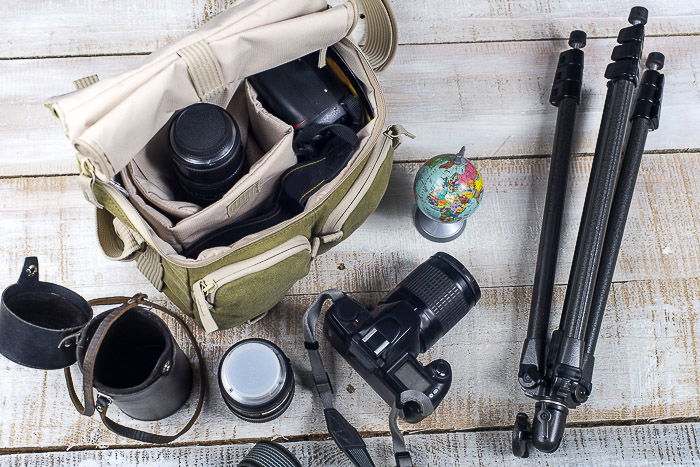
4. Settings to Help You Get the Best Landscape Images
It’s obvious, but the most important part of making money with landscape photography is taking great photos. This is the main factor determining how well you can sell your photos.
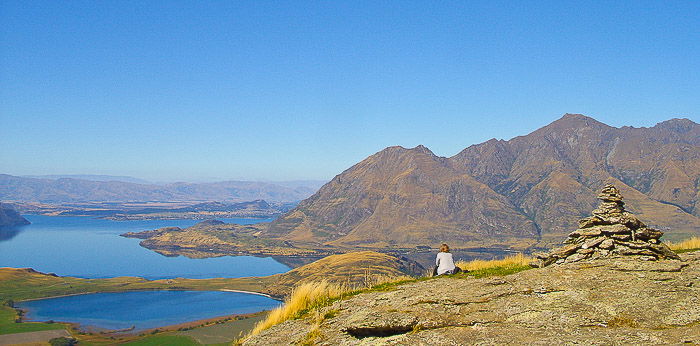
Here are some quick tips on landscape photography settings to help you capture great landscape photos.
- Landscape photography is as much about the conditions as it is about location. The time of day and year make a huge difference to a photo. Early morning and late afternoon light often give the most pleasing result. Sunrises and sunsets are also good options if the conditions are right and you get a dramatic sky.
- Unlike portraits, you usually want to keep the whole scene sharp for a landscape photo. That means you need to have a small aperture to give you a greater depth of field. Start at around f/8 and adjust accordingly.
- Low light and a small aperture will mean that often you will end up with a slow shutter speed. This means you cannot handhold a camera steady enough to avoid camera shake unless you raise your ISO. But this will mean more noise in your image, making it look soft. The best way to capture great landscape photos is to use a tripod.
- Try to compose your shots using the rule of thirds to help you create a pleasing composition. Put points of interest on the intersections of the lines and try to create balance within the image. This includes your horizon line, which shouldn’t be in the middle of the image.
- Tweak your photo in post-production by boosting vibrancy, contrast, and anything else that enhances the image. Don’t forget to also spot remove any dust particles that appear on the image.
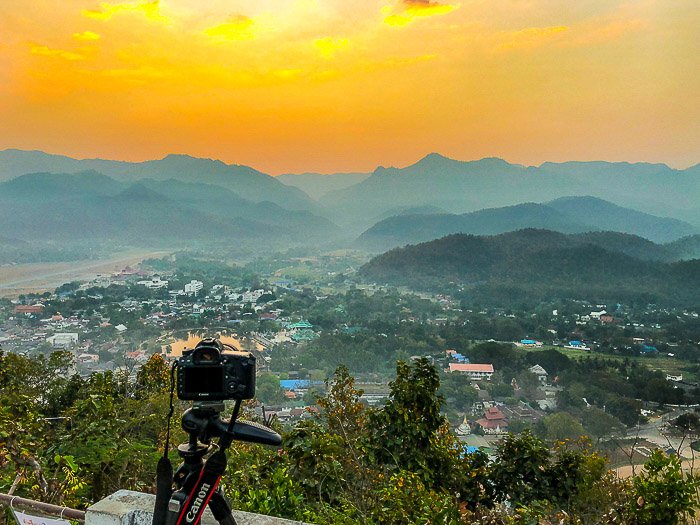
5. Keep Up to Date With Landscape Photography Trends
Some people struggle to take great landscape photos. But there is nothing wrong with looking at other photographers whose work you admire. In fact, you should spend time exploring the work of famous landscape photographers.
Try to read their stories, advice, and even what others have written about their work. Why do their images get such praise? What is it that you admire about their work?
The point of this process is to get inspiration to help you find your own way. So don’t try to copy their work—create your own.
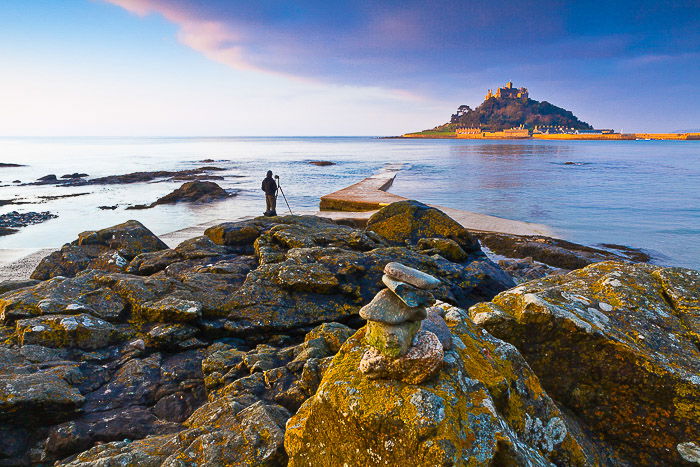
6. Improve Your Marketing Strategy for More Exposure
One of the hardest parts of freelance photography is doing everything by yourself. You will have to respond to customers. You will have to invoice people. And you will have to promote yourself and your work.
So, even if marketing and promotion aren’t your strengths, you will need to learn the basics.
Learn how to use social media. Utilize email capture forms to send newsletters and updates. Or even hire a stand at a local trade show to promote your photos.
Your work might be amazing. But if no one sees it, you won’t profit from your photos.
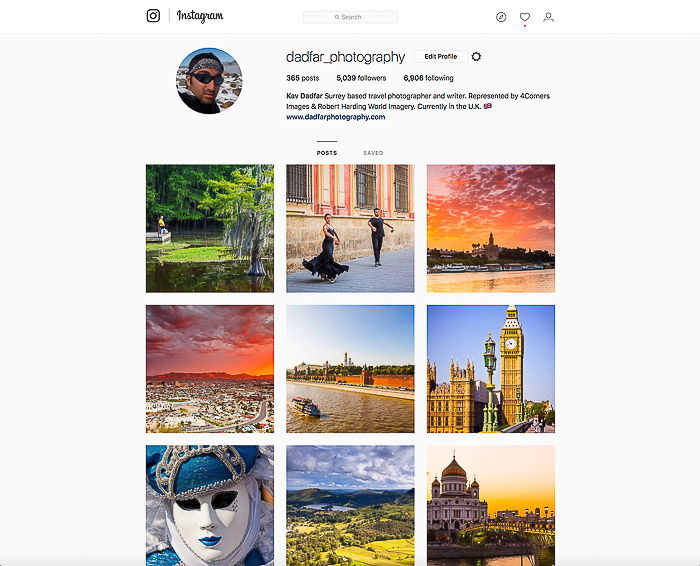
How Much Does a Photographer Make?
This is often the most common question people ask when pursuing this profession. The simple answer is that there is no limit. Some photographers earn a lot of money from their photos. But these are few and far between.
Most people who venture into this profession soon find out that making money from photography is tough. Unfortunately, we live in a digital age where there is far more supply than demand when it comes to photos.
Most professional photographers can earn a decent income with the right approach and long-term thinking.

Conclusion: How to Sell Landscape Photos
A great landscape photograph can look stunning anywhere. It can look great in a magazine, hung on a wall at home, or plastered across a billboard.
Making it as a professional photographer can be difficult. But if you set a clear long-term goal, you can make money with landscape photography.